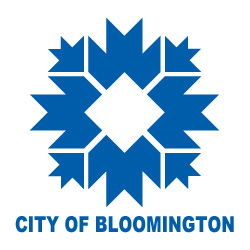
(BLOOMINGTON) – The City of Bloomington has published the results of a survey assessing how residents use internet services as the first step in the development of Mayor John Hamilton’s Digital Equity Strategic Plan.
The survey was sent to a randomized sample of 6,500 Bloomington households in April 2020 and was completed by 1,080 respondents. Results of the scientific survey have been collected and are being analyzed with the goal of improving internet accessibility and affordability for Bloomington residents. The survey’s full results are available here: https://data.bloomington.in.gov/dataset/digital-equity.
Some preliminary findings from the Digital Equity Community Survey include:
- 12% of low-income respondents never interact with the internet.
- The homework gap (problems completing homework due to internet deficiencies) is significant for lower-bandwidth households.
- Existing subsidy programs from internet service providers aren’t fully being used by eligible residents.
- Caregivers are concerned about risks and their ability to protect minor children from online harms.
- Low-income residents report a lack of desired computing skills and are interested in training to improve their skills.
- The skills gap is pronounced for low-income and older residents: 50% of such respondents think they do not have the skills they need to use the internet effectively and comfortably.
- Fully half of respondents said their job now requires internet access at home.
- There is broad support for the City doing more to address digital equity issues and to improve broadband in Bloomington.

“Access to the internet and internet-enabled devices is the 21st-century equivalent of the 20th-century’s electricity and running water,” said Mayor Hamilton. “It is basic to everyone’s full and fair participation in today’s economy, health care, education and culture. The COVID crisis has only focused attention on that imperative. These results show us some real challenges, and will help steer our efforts to help more residents participate more fully and fairly in the digital world.”
The Digital Equity survey and ultimately the strategic plan that emerges from it will provide a foundation for any funding opportunities that may emerge from additional state or federal COVID stimulus and other broad-based stimulus for example from a federal infrastructure package. As part of the Mayor’s Recover Forward initiative, the City also will seek immediately to establish a digital equity grants fund to support local nonprofit partners in their efforts to bridge the digital divide, with special attention to issues identified by the Digital Equity survey.
To conduct the scientific survey, the City partnered with CTC Technology and Energy, which has conducted comparable surveys and helped develop digital equity strategies for cities including Austin, Texas; Portland, Oregon; and Seattle, Washington. Although plans to conduct the survey were made before the COVID-19 pandemic, due to its timing, the survey’s results may reflect the enhanced role of internet access perceived during the crisis.



